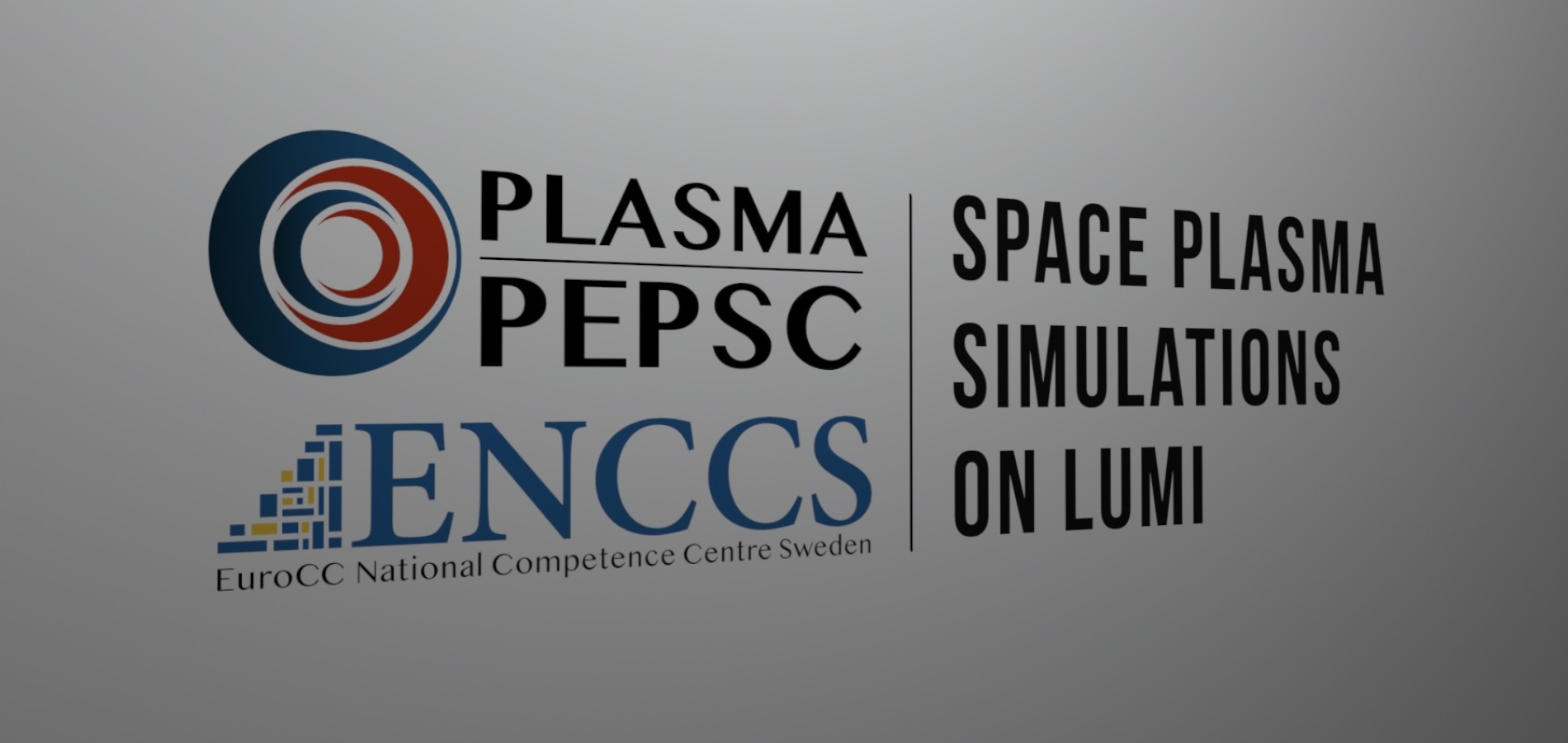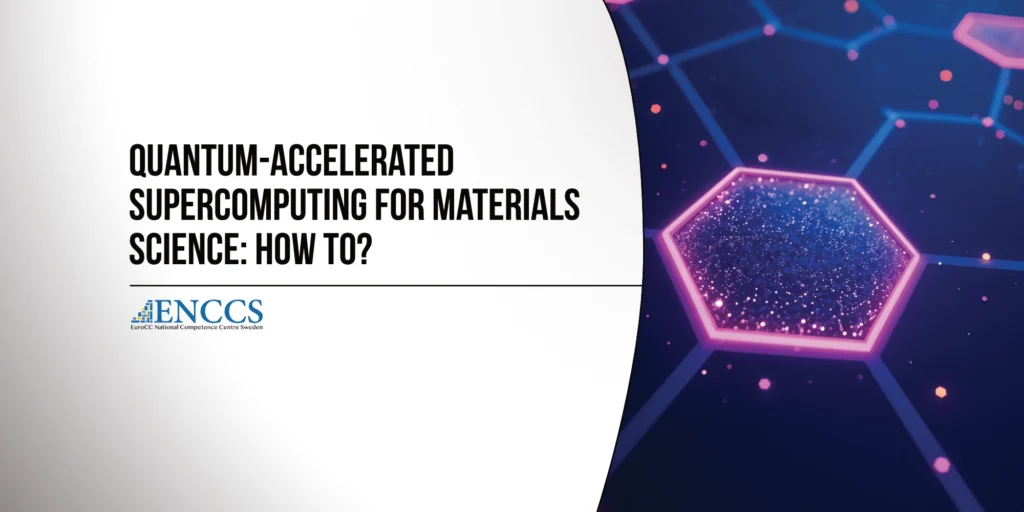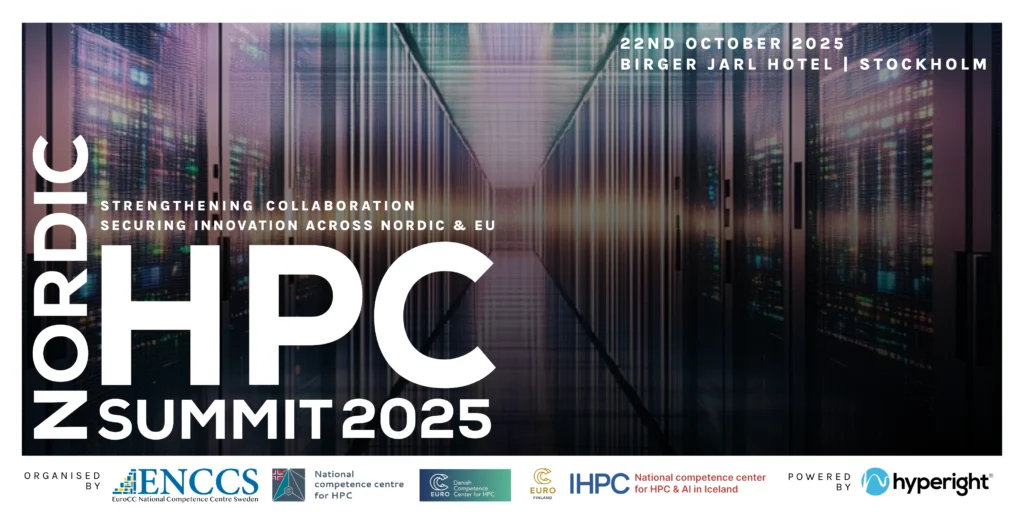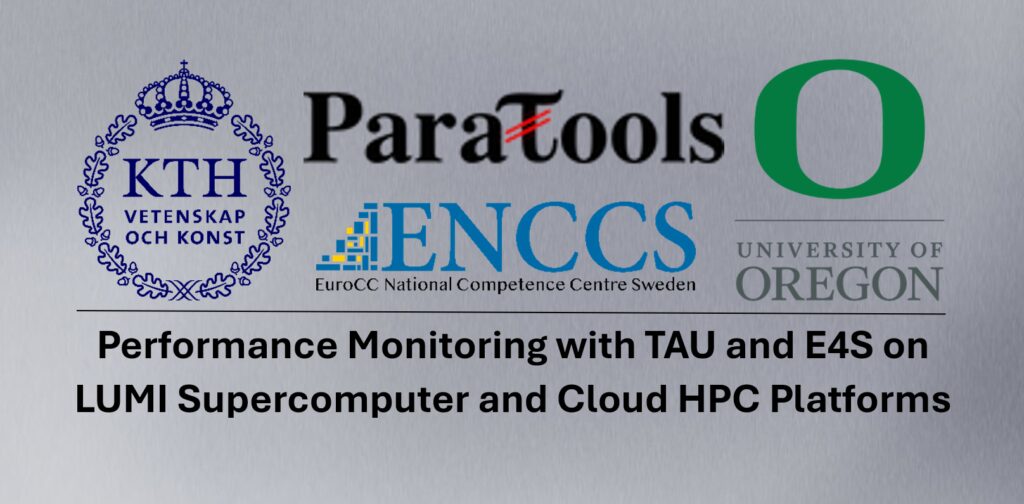
- This event has passed.
Space Plasma Simulations with Vlasiator on LUMI Supercomputer (Hybrid event)
13 Feb 2024 • 09:00 – 15 Feb 2024 • 15:00 CET

Overview
ENCCS comes together with Plasma-PEPSC CoE for the organisations of this hybrid workshop to bring together code developers, researchers, and research software engineers working on plasma science, and create an amazing opportunity for sharing innovative ideas and best practice for potential users to use the Vlasiator package and using its capabilities and assorted tools for data analysis. This workshop includes:
- running simulations at scale
- benchmarking for deploying Vlasiator on supercomputing environments
- designing a simulation setup, with notes on applicability and resources required
- Accessing the .vlsv data via Analysator
- Accessing the .vlsv data via the VisIt plugin
The theoretical description of plasma using analytic modeling tools is somewhat limited and great progress in plasma physics has been achieved using computer simulations. Indeed, advances in massively parallel simulations using high performance computing (HPC) resources have have further boosted our understanding of plasma science at an unprecedented resolutions and levels of physical fidelity. These simulations have been producing a new wealth of knowledge and enabling key applications for science, industry, and society.
Plasma simulations with Vlasiator
Vlasiator (GitHub), is the state-of-the-art hybrid-Vlasov simulation for ion-scale physics in a global magnetospheric setting. It is the only 6D hybrid-Vlasov code capable of simulating the Earth’s magnetosphere. In Vlasiator, ions are represented as velocity distribution functions, while electrons are magnetohydrodynamic fluid, enabling a self-consistent global plasma simulation that can describe multi-temperature plasmas to resolve non-MHD processes that currently cannot be self-consistently described by the existing global space weather simulations. The novelty is that by modelling ions as velocity distribution functions the outcome will be numerically noiseless. Due to the multi-dimensional approach at ion scales, Vlasiator’s computational challenges are immense. We will use advanced HPC techniques using tens of thousands of cores to perform massively parallel computations.
What you will learn
After attending this workshop, you will:
- Understand core features of the Vlasiator package
- Be efficient using the Vlasiator package to perform plasma simulations
- Be productive in data analysis and visualization of simulation results
- Be able to create your own project
Prerequisites
- PhD students, postdocs, industry engineers
- Basic familiarity with general physics and plasma physics
- Some previous practical experience running some plasma code
- Basic familiarity with Unix shell
- Basic familiarity with HPC environment is helpful but not mandatory
Format/venue
The event is going to be held at the Stockholm RISE offices on KTH campus Drottning Kristinas väg 61 in room Innoversum. The closest metro station (marked T) is Tekniska Högskolan. However, we will also broadcast the seminars and hands-on sessions live for online participants who will be able to participate actively in the workshop through live Q&A and chat.
Agenda
Monday, 12 February 2024: HPC onboarding session
- ~2 hours online session to help participants log in the LUMI cluster
Tuesday, 13 February 2024: Getting started with Vlasiator
| Time | Topic |
|---|---|
| 09:00-09:10 | • Welcome • Introduction to Plasma-PEPSC and ENCCS |
| 09:10-10:00 | Introduction to Vlasiator • What is it? • What can I do with it? • Rules of the Road • What do I need to run it? |
| 10:15-11:15 | Setting up Vlasiator • *nb. pre-materials for vlasiator setup • Getting Vlasiator & libraries, Vlasiator versions guidance • Compilation • Running testpackage/a benchmarking test case • Existing project configuration templates |
| 11:30-12:30 | Running Vlasiator at scale • Benchmarking • Scaling rules-of-thumb • MPI-I/O / Lustre striping • Restarts, best practices |
| 12:30-13:30 | Lunch break |
| 13:30-15:00 | Workshopping with the Vlasiator team |
Wednesday, 14 February 2024: Working with Vlasiator data
| Time | Topic |
|---|---|
| 09:00-10:00 | Vlasiator outputs • Recap of what we learned yesterday • Runtime outputs • Vlasiator datareducers • Grid types, variable centerings • vg, fg, ig, velocity meshes |
| 10:15-11:15 | Analysator • Basic use • Datareducers & derived data • Producing sidecars? |
| 11:30-12:30 | VisIt and the vlsv plugin • Setting up host profile • Basic usage • Example: find the current sheet/magnetopause via some proxy |
| 12:30-13:30 | Lunch break |
| 13:30-15:00 | Workshopping with the Vlasiator team |
Thursday, 15 February 2024: Vlasiator use-case from start to finish
| Time | Topic |
|---|---|
| 09:00-10:00 | Recap, currently available Vlasiator configurations • Recap of what we learned yesterday • Rules of the Road (citing original papers) • Project structure and pre-made configurations |
| 10:15-11:15 | Setting up a small magnetosphere simulation • How to create a new project setup |
| 11:30-12:30 | Workshopping, questions, etc |
| 12:30-13:00 | Concluding • Questions, feedback • Suggestions for Quality-of-Life improvements wrt. external users • Contact details, who to ask about what |
Disclaimer
Due to EuroCC2 regulations, we cannot except generic or private email addresses. Please use your official university or company email address.
This training is for users that live and work in the European Union or a country associated with Horizon 2020. You can read more about the countries associated with Horizon2020 here https://ec.europa.eu/info/research-and-innovation/statistics/framework-programme-facts-and-figures/horizon-2020-country-profiles_e
Registration
Registrations are now closed for this event.
Additional lesson materials
Do you want to learn more about MPI, GPU programming and other supercomputing-related fields? Take a look on our lessons page.










